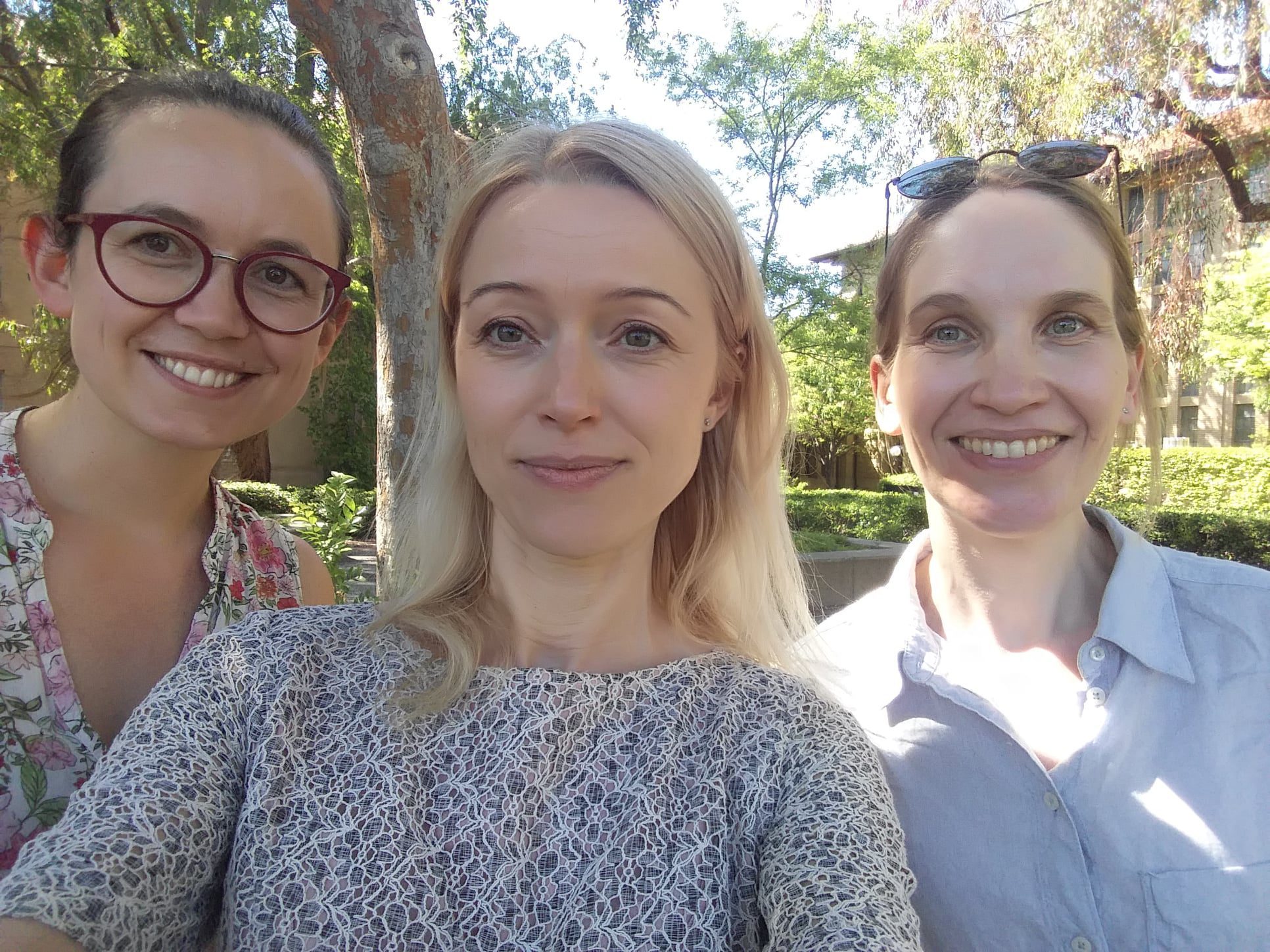Stanford University Libraries, along with The Europe Center and The Freeman-Spogli Institute for International Studies, recently launched two new fellowship programs that brought five Estonian scholars to Stanford in 2022. The Short-Term Research Fellowship at Stanford University for Estonian Scholars and The Global Digital Governance Fellowship at Stanford University for Estonian Scholars were awarded to Professor of International Law at the University of Tartu Lauri Mälksoo, Professor in Comparative Politics at the University of Tartu Piret Ehin, Associate professor of Big Data in Social Sciences at Tallinn University of Technology (TalTech) Anu Masso, Senior Researcher at TalTech Anna-Maria Osula, and Professor of Digital Systems’ Verification at TalTech Jaan Raik. The short-term fellowships, ranging between 6 weeks and 6 months, are awarded each fall and are funded by The Ministry of Foreign Affairs of Estonia and Vabamu.
We asked the first cohort of Estonian fellows to describe their stay at Stanford and what they appreciated most about their time in the United States.
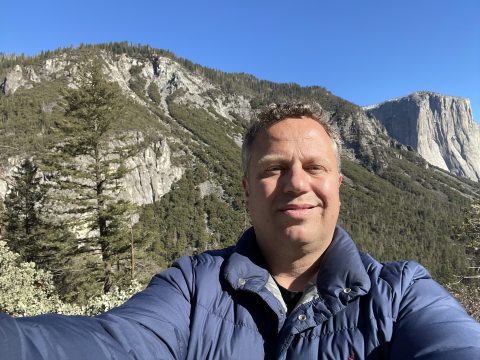 Lauri Mälksoo, University of Tartu
Lauri Mälksoo, University of Tartu
Short-Term Research Fellow at Stanford University, January–February 2022
The main tangible aim of my 6 weeks at Stanford University, in January and February 2022, was to work on the 2nd edition of my Brill book, “Illegal Annexation and State Continuity. The Case of the Incorporation of the Baltic States by the USSR”. The first edition of my book had been published in 2003 and the second edition was published in July 2022. The open access book can be found here.
Besides working on the text of my book, I made fruitful academic contacts within the Europe Center and at the Law School and conducted research at the Hoover Institution Library and Archives. I intend to use some materials collected on Eurasian matters in the Hoover archives for my future publications, especially the personal archive of the Estonian diplomat and foreign minister Kaarel Robert Pusta (1883–1964). Unlike his fellow diplomats and statesmen such as Ants Piip, he survived the Soviet occupation (since he was abroad) and continued to diplomatically represent the Republic of Estonia in exile, in Madrid and Paris. His extensive correspondence from the Cold War era is fascinating and reveals what Western non-recognition of the Soviet annexation meant in practice at the time. Pusta was also a member of the Institut de Droit International of which I also happen nowadays to be a member, and it was interesting to see from his correspondence how the IDI functioned during the Cold War.
During my stay at Stanford, I also gave a public talk at the Europe Center on Russia, the Soviet Union, and the illegal use of force. The day after my return to Estonia, on 24 February 2022, Russia started its aggression against Ukraine.
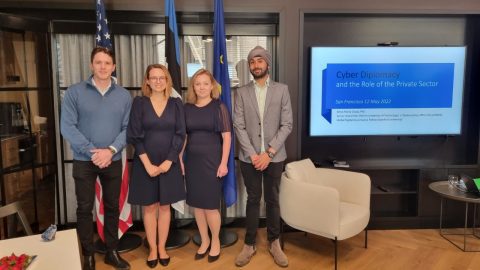 Anna-Maria Osula, Tallinn University of Technology
Anna-Maria Osula, Tallinn University of Technology
Global Digital Governance Fellow at Stanford University, April–May 2022
My fellowship focused on conceptualizing the private sector’s role in cyber diplomacy. In addition to desk research carried out in the excellent Stanford Green Library, attending various academic events, and learning about world-class research carried out in Stanford, I conducted interviews with nearly twenty experts from industry, government, academia, and non-governmental organizations. The outcome of the research feeds into TalTech’s contribution to two EU projects – CASPA and CYDIPLO – which both tackle challenges related to training, education, and research in the field of cyber diplomacy.
One of the highlights of my fellowship was presenting at a workshop organized in the Tech Diplomacy Playground format by the Estonian Consulate in San Francisco, where I had the opportunity to discuss pertinent practical challenges related to my research domain with Silicon Valley diplomats working with cyber security and technology from more than 10 different countries. Equally relevant for my research project were presentations to and feedback from various audiences at Stanford and speaking at the 28th Biennial Association for the Advancement of Baltic Studies (AABS) Conference in Seattle. I also had the opportunity to discuss my research and ideas on cyber diplomacy in a podcast series Tech Diplomacy put together by the Consulate General of Norway in San Francisco, which allowed for a great exchange of views with practitioners in the field.
Not only was the fellowship motivating in terms of professional goals and rich in networking, but it also offered a lot of inspiration and energy that could be drawn from the beautiful Californian coast, many amazing national parks, and vibrant urban culture. I am very grateful for the Stanford University Libraries Baltic Studies Programme and the Programme on Geopolitics, Technology and Governance at the Freeman Spogli Institute for International Studies for being outstanding hosts; and I do hope that our cooperation continues also in the future.
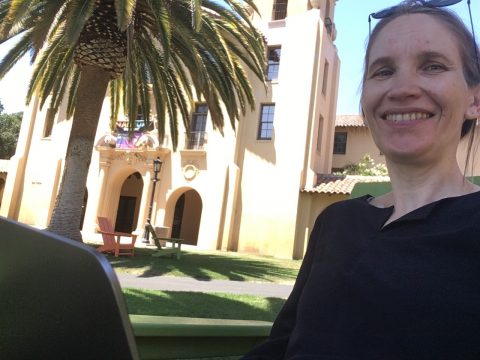 Anu Masso, Tallinn University of Technology
Anu Masso, Tallinn University of Technology
Global Digital Governance Fellow at Stanford University, April–July 2022
My research at Stanford relied on the emerging phenomena of social changes through data migration, where that data is transferred from one society to another to develop machine learning models. An example of data migration is the mobile phone application Ubenwa, developed in Canada, based on Mexican babies’ cry data and implemented in Nigeria to detect birth asphyxia, which is one of the main causes of infant deaths worldwide. These data transfers can change individuals’ lives and societies globally. However, we do not know why data migration sometimes fails or succeeds. Therefore, there is a need for a conceptual framework to understand better and empirically measure the unknown social mechanisms of data migration. Based on the presentations, discussions, and consultations with colleagues at Stanford, I worked on developing a theoretical-methodological framework for data migration as a newly emerging research stream.
Besides the main research aims, the significant benefit of the Stanford fellowship was the opportunity to use the Stanford Libraries collections, especially the Silicon Valley Archives, in my research. The fellowship also gave me valuable opportunities to learn from the experiences of data activists, practitioners, and stakeholders about the benefits, obstacles, and challenges of data transfers (e.g., SUCHO initiative of Stanford Libraries, GeoMatch from Immigration Policy Lab, etc.). The opportunity to consult with colleagues from Human-Centered Artificial Intelligence (HAI) was valuable for learning more about how to combine transdisciplinary ideas and ethically develop, test, and evaluate AI solutions. Based on the numerous meetings, consultations, and discussions, it was very gratifying for me to hear that this study visit was valuable not only to me but also to the colleagues I met at Stanford who were interested in learning about digital social transformations in Estonia, cross-cultural comparative research methods, and data migration research stream.
In addition to academic and practical benefits, the research visit gave me opportunities to learn about American society, culture, and nature. It was fascinating for me to experience the richness of nature in California. The high sustainability standards of the Stanford campus, including 100 percent renewable electricity, bicycle-friendly roads, and a traffic culture that I experienced, are excellent examples of university campuses worldwide. Therefore, for me, the Stanford fellowship has been a perfect start for initiating new joint articles, research, and project applications. This research mission to Stanford has been among the best organized and fruitful research trips I have had; therefore, I highly suggest the fellowship to other applicants.
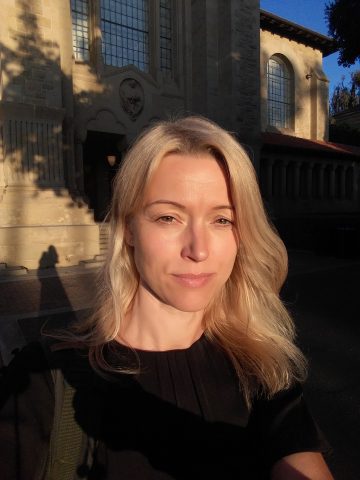 Piret Ehin, University of Tartu
Piret Ehin, University of Tartu
Short-Term Research Fellow at Stanford University, May–June 2022
During my time at Stanford, I worked on the project, “Varieties of global populism: the rise of the populist far-right in Estonia.” The project examined the reasons for the rise of the populist far-right in Estonia (and the Baltic region more broadly) against the backdrop of the global upsurge of populist actors. I delivered a lecture at the Europe Center, entitled “Populist Civilizationalism Transcending Post-Soviet Cleavages: Evidence from Estonia,” on May 26th, and presented the results of my research at the 28th Biennial AABS Conference “Baltic Studies at a Crossroads,” held on May 27-29, 2022 at the University of Washington, Seattle. The results of my research will be published in a special issue of a scholarly journal.
I attended public lectures and book presentations at Stanford, and networked extensively, meeting Stanford scholars, including David Laitin, Michael McFaul, Norman Naimark, Larry Diamond, Christoph Crombez, and Bertrand Patenaude among others, other visiting fellows as well as fellow Estonians studying and working at Stanford. I contributed to the Stanford internship program by delivering a lecture on Baltic politics and societies to Stanford students heading to Estonia and Latvia for a seven-week summer internship, and by discussing internship tasks and activities with the three students preparing for an internship at the Johan Skytte Institute of Political Studies at the University of Tartu. During my stay in the US, I also visited the University of Arizona and the University of California Santa Cruz.
My seven-week stay at Stanford was extremely stimulating and rewarding, and it was great to meet scholars whose work has had a strong impact on me. I would like to thank everyone who helped me with my work and my stay, and I hope to contribute to Stanford-Estonia ties also in the future.
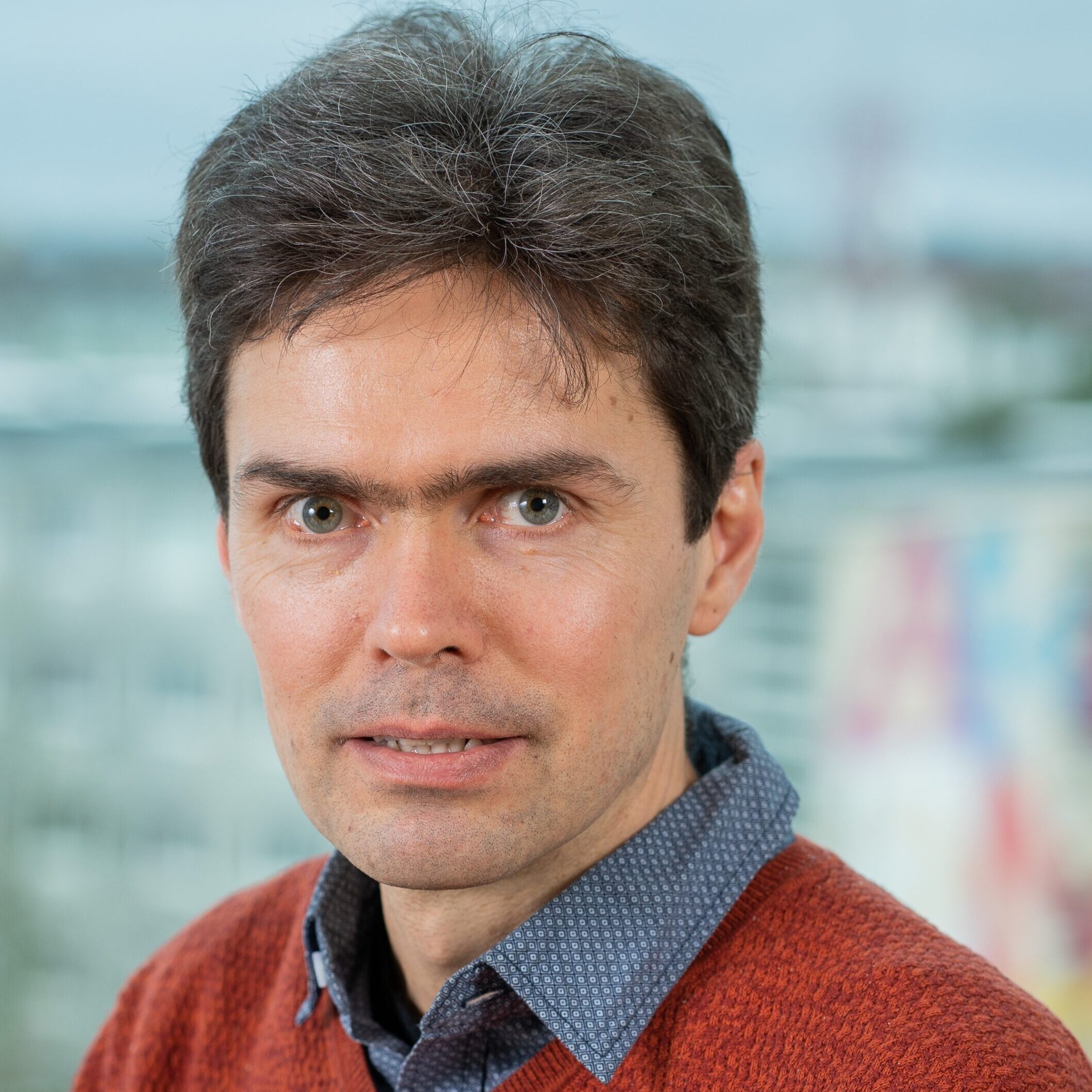 Jaan Raik, Tallinn University of Technology
Jaan Raik, Tallinn University of Technology
Global Digital Governance Fellow at Stanford University, July-September 2022
My stay is still ongoing and by now I have spent slightly more than half of the planned time at Stanford. The focus of the stay is collaborative research on the security of computer chips. The topic is especially timely in connection with the ongoing chip crisis and concentration of production largely in Asian countries. More specifically, the objective is to develop novel information leakage monitoring for chips in collaboration with Prof. Subhasish Mitra’s lab at the Stanford Department of Electrical Engineering. In particular, the work targets the security in emerging chip technologies and architectures such as memristors, non-volatile memories, and/or deep neural networks.
The first half of the stay has been highly rewarding. I had a chance to visit the DAC Conference (Design Automation Conference) in San Francisco which is a premier scientific event regarding chip design automation. I participated in the Work-In-Progress session, where I presented a work carried out in cooperation with researchers from the University of Tartu on a novel neural network chip for autonomous insect-sized robots. At Stanford, I have taken part in lab seminars and a mini-symposium, where the guest speakers included such world-renowned computer scientists as Giovanni De Micheli, Onur Mutlu, and Wolfgang Kun. Through this, I have further extended my research network with new contacts and strengthened the existing ones.
In September, I plan to present one or two lectures, hosted by the Stanford Department of Electrical Engineering, on new trends in the resilience and security of chips to the Stanford audience. There are also plans to establish collaborative ties to Stanford’s Institute for Human-Centered Artificial Intelligence.

 Back
Back